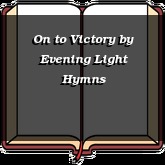"I tell you that, if these should hold their peace, the stones would immediately cry out."
—Luke 19:40
But could the stones cry out? Assuredly they could if he who opens the mouth of the dumb should bid them lift up their voice. Certainly if they were to speak, they would have much to testify in praise of him who created them by the word of his power; they could extol the wisdom and power of their Maker who called them into being. Shall not we speak well of him who made us anew, and out of stones raised up children unto Abraham? The old rocks could tell of chaos and order, and the handiwork of God in successive stages of creation's drama; and cannot we talk of God's decrees, of God's great work in ancient times, in all that he did for his church in the days of old? If the stones were to speak, they could tell of their breaker, how he took them from the quarry, and made them fit for the temple, and cannot we tell of our glorious Breaker, who broke our hearts with the hammer of his word, that he might build us into his temple? If the stones should cry out they would magnify their builder, who polished them and fashioned them after the similitude of a palace; and shall not we talk of our Architect and Builder, who has put us in our place in the temple of the living God? If the stones could cry out, they might have a long, long story to tell by way of memorial, for many a time hath a great stone been rolled as a memorial before the Lord; and we too can testify of Ebenezers, stones of help, pillars of remembrance. The broken stones of the law cry out against us, but Christ himself, who has rolled away the stone from the door of the sepulchre, speaks for us. Stones might well cry out, but we will not let them: we will hush their noise with ours; we will break forth into sacred song, and bless the majesty of the Most High, all our days glorifying him who is called by Jacob the Shepherd and Stone of Israel.
Ⓒ 1996-2021 Heartlight, Inc. This material may not be reproduced in part or whole for commercial use without written consent. Written by Charles H. Spurgeon.

Continue reading...
—Luke 19:40
Evening Thought
But could the stones cry out? Assuredly they could if he who opens the mouth of the dumb should bid them lift up their voice. Certainly if they were to speak, they would have much to testify in praise of him who created them by the word of his power; they could extol the wisdom and power of their Maker who called them into being. Shall not we speak well of him who made us anew, and out of stones raised up children unto Abraham? The old rocks could tell of chaos and order, and the handiwork of God in successive stages of creation's drama; and cannot we talk of God's decrees, of God's great work in ancient times, in all that he did for his church in the days of old? If the stones were to speak, they could tell of their breaker, how he took them from the quarry, and made them fit for the temple, and cannot we tell of our glorious Breaker, who broke our hearts with the hammer of his word, that he might build us into his temple? If the stones should cry out they would magnify their builder, who polished them and fashioned them after the similitude of a palace; and shall not we talk of our Architect and Builder, who has put us in our place in the temple of the living God? If the stones could cry out, they might have a long, long story to tell by way of memorial, for many a time hath a great stone been rolled as a memorial before the Lord; and we too can testify of Ebenezers, stones of help, pillars of remembrance. The broken stones of the law cry out against us, but Christ himself, who has rolled away the stone from the door of the sepulchre, speaks for us. Stones might well cry out, but we will not let them: we will hush their noise with ours; we will break forth into sacred song, and bless the majesty of the Most High, all our days glorifying him who is called by Jacob the Shepherd and Stone of Israel.
Ⓒ 1996-2021 Heartlight, Inc. This material may not be reproduced in part or whole for commercial use without written consent. Written by Charles H. Spurgeon.
Continue reading...


 Let's lift up Dweryall for peace, strength, & understanding. "Trust in the Lord with all your heart" (Prov 3:5). Praying for marriage restoration & breakthroughs in all areas. "With God all things are possible" (Matt 19:26). In Jesus' name!
Let's lift up Dweryall for peace, strength, & understanding. "Trust in the Lord with all your heart" (Prov 3:5). Praying for marriage restoration & breakthroughs in all areas. "With God all things are possible" (Matt 19:26). In Jesus' name! 
 **Prayer Warriors!** Let's lift up these requests:
**Prayer Warriors!** Let's lift up these requests:
 Little Penelope needs healing from nausea and eye issues (
Little Penelope needs healing from nausea and eye issues ( Depressed soul needs lifting out of depression (Anonymous).
Depressed soul needs lifting out of depression (Anonymous). New Orleans victims need quick recovery (
New Orleans victims need quick recovery ( Breakthrough in prayer for
Breakthrough in prayer for  Comfort for Ed who lost his wife Anne (
Comfort for Ed who lost his wife Anne (


 In Jesus' Name!
In Jesus' Name!
 Let's also pray for health (
Let's also pray for health ( 
 **Prayer Group Updates!**
**Prayer Group Updates!** 
 Safe travels for
Safe travels for 
 Healing for
Healing for  Financial miracle for
Financial miracle for  Victory over false accusations for anonymous user.
Victory over false accusations for anonymous user. Lower blood pressure for anonymous user.
Lower blood pressure for anonymous user. Blessings for
Blessings for  Healing & peace for
Healing & peace for  Healing & weather protection for
Healing & weather protection for  Right connections for anonymous user.
Right connections for anonymous user. Praise report for Lou's progress!
Praise report for Lou's progress!

